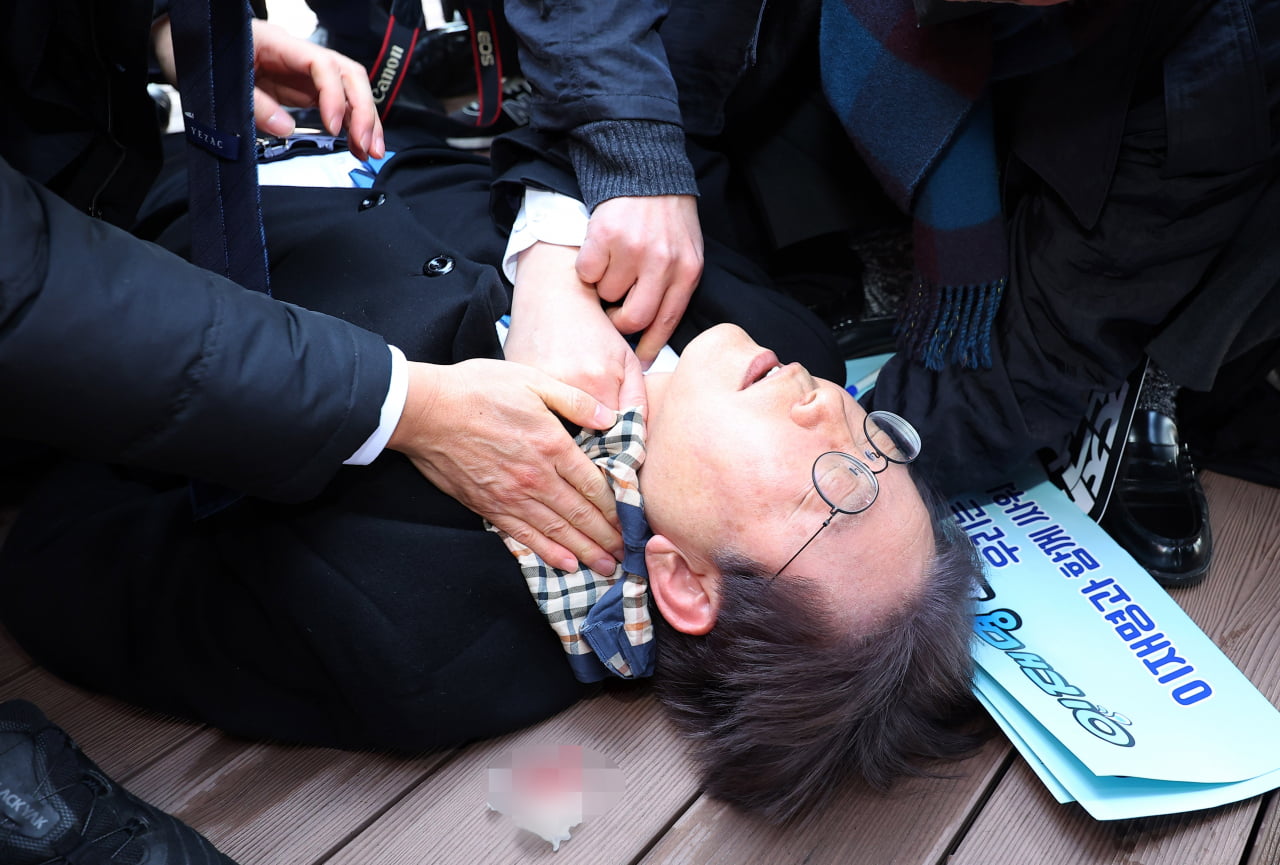Authorities reported that Lee Jae-myung, the head of South Korea’s Democratic Party, remained conscious but was slated for surgery.
On a fateful Tuesday during a visit to Busan, South Korea’s opposition leader, Lee Jae-myung, faced a shocking incident as an unidentified assailant stabbed him in the neck. The chairman of South Korea’s Democratic Party, Lee, fortunately sustained a non-life-threatening injury, according to a police official in the city.
Remarkably, Lee remained conscious and experienced minimal blood loss, as reported by an official statement to NBC News. The assailant, identified as a male in his 60s from south Choongchung province, was promptly taken into custody. Sohn Jae-han, the head detective from the Busan Regional Police, provided details during a briefing on Tuesday, revealing that the suspect had confessed to attempting to kill Lee Jae-myung using a 7-inch-long knife.
Immediate action ensued as Lee’s security personnel swiftly restrained the suspect following the attack. Gripping photos from the incident depicted Lee on the ground surrounded by concerned individuals, with someone applying pressure to his neck. Another image showed Lee being transported on a stretcher equipped with what appeared to be a neck brace.
A police official who communicated with NBC News described the wound as less than half an inch long. Kwon Chil-seung, a spokesperson for the Democratic Party, addressed concerns about potential jugular vein damage, indicating that there was a possibility of massive or additional bleeding. Lee Jae-myung was expected to undergo an operation once transferred to Seoul National University Hospital in the country’s capital.
The Democratic Party strongly condemned the incident as an act of terror aimed at undermining democracy. South Korean President Yoon Suk Yeol swiftly responded, ordering a thorough investigation and directing officials to ensure Lee receives the best possible care. The presidential spokesperson emphasized zero tolerance for violence, asserting that such acts should never be tolerated under any circumstances.
According to emergency officials cited by the Associated Press, the attack unfolded while Lee Jae-myung was visiting the construction site of a new airport in Busan. However, the nature of the attack remained undisclosed, and the suspect’s identity was yet to be revealed by authorities.
The unfortunate incident adds another layer to Lee’s political journey, marked by his narrow loss in the 2022 presidential election to Yoon by a mere 0.7 percentage point—a record-setting margin in South Korean presidential elections. Lee faces various corruption allegations, vehemently denying any legal wrongdoing and attributing the accusations to a political vendetta orchestrated by Yoon’s government.
This unsettling event brings to mind past attacks on prominent figures in South Korea. In 2022, Lee’s predecessor, Song Young-gil, was attacked by an individual wielding a hammer-like object. In 2015, U.S. Ambassador to South Korea Mark Lippert was attacked with a knife to his face and arm. Additionally, in 2006, conservative party leader Park Geun-hye, who later became the country’s president and was sentenced over a corruption scandal, was stabbed at an event, undergoing subsequent surgeries.
The recent assault on Lee Jae-myung serves as a stark reminder of the challenges and risks inherent in the political landscape, prompting a collective call for vigilance and security measures to safeguard public figures.

